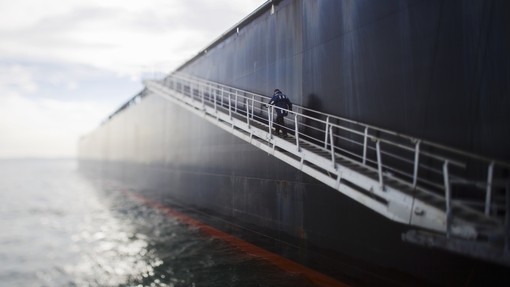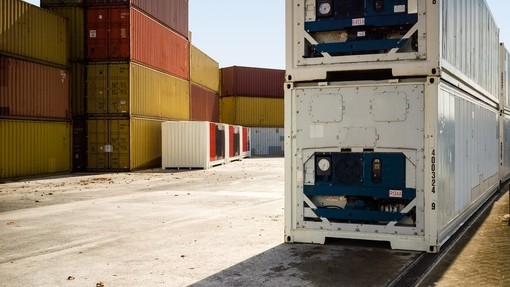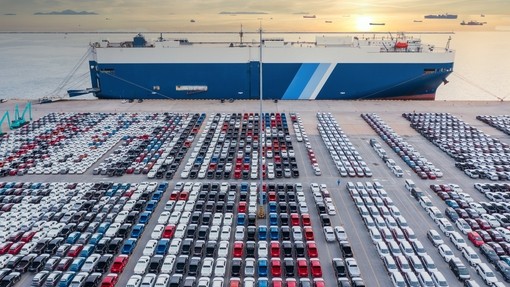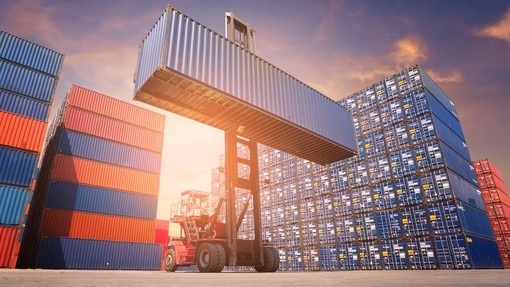UK Border Force enforcement procedures against hauliers and logistics operators

UK Border Force enforcement procedures against hauliers
As a haulier or logistics operator transporting goods to or from the UK, it is important to understand the UK Border Force’s enforcement powers and procedures. The UK Border Force has various powers to seize or detain your goods and vehicles, or to impose penalties on you for transporting clandestine entrants (often referred to as ‘illegal migrants’). These actions can have serious consequences for your business and reputation, as well as your legal rights and obligations.
How can you avoid or deal with these situations? What are your options for recovering your property or challenging the penalties? In this article, we will provide you with an overview of the UK Border Force’s enforcement procedures and powers, and how you can protect your interests and minimise risks when facing them. We will also explain how we can help you with expert legal advice and support in all these aspects.
What enforcement powers does the UK Border Force have?
The UK Border Force is a law enforcement command within the Home Office, with responsibility for enforcing customs controls and immigration checks for goods and people entering the UK.
One of the most important considerations for hauliers is the UK Border Force’s power to seize goods and vehicles under section 139 of the Customs and Excise Management Act 1979. These powers may be used in circumstances in which Border Force suspects that the goods are ‘liable to forfeiture’. Goods may be declared to be liable to forfeiture as a result of violations of customs laws, non-payment of duty or being restricted or banned items.
In addition to the seizure of the goods in question, UK Border Force also has the power to seize the haulage vehicle if there is a suspicion that the party may seek to evade payment of the duty payable on the transported goods. A vehicle may also be seized in the event that financial penalties (for example relating to the transportation of clandestine migrants) have not been paid.
If the haulier is present at the time of the seizure or detention of the goods, Border Force will provide a ‘seizure information notice’, or a ‘notice of seizure’ if they are not present. This notice will set out the reason for the seizure, its legal basis, and options for the haulier to seek recovery of the seized goods.
If property is seized by the UK Border Force, what are the recovery options?
In response to a seizure of goods or vehicles by UK Border Force, a haulier has a number of options for seeking recovery, although time is of the essence, so it is important to act promptly in taking action to resolve the situation. Broadly, the two main options for recovery available to a party whose property has been seized are through:
- Challenging the legality of the seizure (Condemnation); or
- Requesting restoration of the seized goods or vehicles (Restoration).
What is the Condemnation procedure?
The ‘Condemnation’ process involves bringing proceedings to a Magistrates’ Court in order for Border Force’s legal right to seize the property in question to be reviewed alongside any relevant evidence. In the event that the court rules that the seizure was unlawful, any seized property will be returned.
In order to commence the Condemnation process, a Notice of Claim must be sent to UK Border Force within one month of receiving the notice of seizure or seizure information notice. If a Notice of Claim is not sent to Border Force within one month, the seized property will be considered to be ‘condemned as forfeited’, meaning that any right to challenge the seizure will be lost. Border Force will also be at liberty to dispose of the seized property from this time.
What is the Restoration procedure?
Alternatively, the ‘Restoration’ procedure can be used where it is accepted that Border Force had a legal right to seize the property in question, but its return is requested on the basis that any fees and duty incurred will be paid.
To request Restoration of seized property, a letter should be written to the UK Border Force at the address shown on the notice of seizure as soon as possible. While there is no time limit for a Restoration request to be made, it should be done without delay as any goods or property may be sold immediately if perishable, or 45 days after the seizure if they are non-perishable.
A request for Restoration will be reviewed by Border Force, who will respond to provide their decision as to whether the property should be returned to you. Any return of seized property is likely to require the payment of any applicable duty and a fee. If the seized property has already been disposed of through sale or destruction, compensation equivalent to the value of the goods may be offered.
If Border Force does not accept a request for Restoration, it is possible to request for this decision to be reviewed by Border Force’s designated ‘Review Officer’. Should this review also reject the request for Restoration, an appeal to the First Tier Tax Tribunal may be made, although this is a potentially costly and lengthy procedure.
What is the UK Border Force’s approach to Restoration applications?
The Border Force’s general policy is that goods seized because of an attempt to evade duty should not normally be restored, but that each case will be examined on its merits to determine whether an exceptional grant of Restoration should be offered.
Where the Border Force consider that the driver or haulier was knowingly involved in smuggling excise goods, the vehicle will not be restored in any circumstances if the revenue involved was significant. If this is not the case, the vehicle may be restored on the first detection of such conduct for a fee equal to 100% of the revenue involved or the trade value of the vehicle (whichever is lower). Even if the sums involved were not significant, the vehicle will not be restored on the second or subsequent detections of knowing involvement in smuggling excise goods.
If Border Force is not satisfied that the driver or haulier carried out ‘basic reasonable checks’ which would have identified the illicit load, in the first detection of such conduct the vehicle may be seized and restoration offered for a fee equal to 20% of the revenue involved or the trade value of the vehicle (whichever is lower). On the second or subsequent detections of such conduct, the vehicle may be seized and not restored.
If Border Force is satisfied that ‘reasonable steps’ were taken to ensure the legitimacy of the load, the vehicle may be seized and restored without charge upon an application for Restoration. Any vehicle which is shown to be adapted for the purposes of smuggling will not normally be restored.
Border Force’s approach clearly demonstrates the benefits to hauliers in guaranteeing that all proper checks for illicit goods are made, as the chances of recovering a seized vehicle are much higher if this can be shown.
What are the penalties for transporting clandestine entrants?
The UK Border Force also has powers under the Immigration and Asylum Act 1999 to impose penalties on owners, drivers, hirers and operators of vehicles which transport clandestine entrants to the UK, which are a particular concern in relation to cross-Channel routes. Penalties levied can range from £2,000 to £10,000 per clandestine entrant, which can amount to a very large sum if multiple clandestine entrants are detected. Border Force also has the power to seize vehicles if such penalties are unpaid.
The penalties imposed by UK Border Force apply pressure on hauliers to implement sufficient security to prevent the entry of clandestines into vehicles, given the financial risks of failing to do so. In support of this objective, the UK Border Force operates a Civil Penalty Accreditation Scheme for operators who are able to demonstrate that their vehicles have high security standards and that the operator has effective systems to prevent clandestine entry. Members of the scheme, which is free to join, benefit from significant 50% reductions to the penalties levied for the transport of clandestine migrants.
How can Hill Dickinson help?
Hill Dickinson are recognised as a leading firm in the field of Transport, Cargo and Logistics, with a ‘Band 1’ ranking from the Chambers UK legal directory. We have a wealth of knowledge and experience in handling complex and multi-jurisdictional cases involving the UK Border Force and other authorities.
We can assist you by:
- Advising on the applicable rules and regulations for your business;
- Providing risk management advice;
- Drafting and reviewing your contracts, conditions of trading and security procedures to ensure they are compliant and enforceable;
- Representing you in any disputes or claims arising from the seizure or detention of your goods or vehicle by the UK Border Force, or the imposition of penalties.
Our experienced team of specialist Transport, Cargo and Logistics lawyers can provide expert advice on all aspects of UK Border Force enforcement procedures, helping you to protect your interests and minimise risk when transporting goods to and from the UK.






